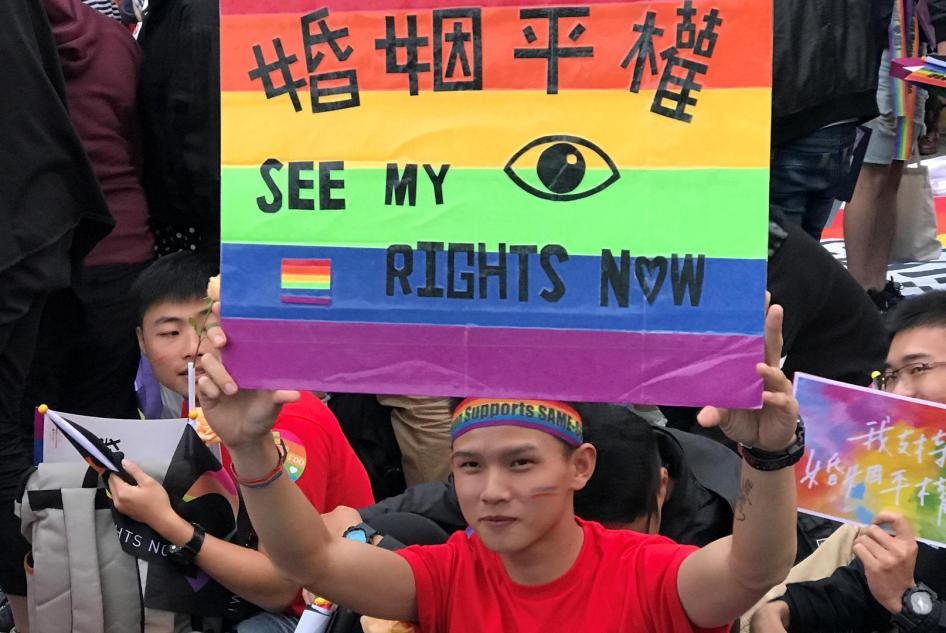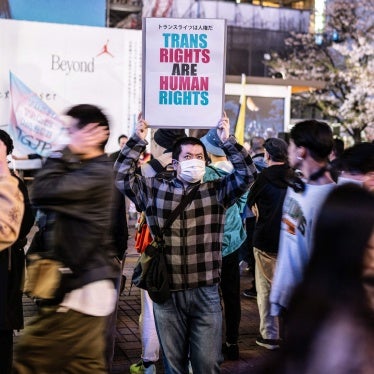Last month, 10,000 people demonstrated in Taipei opposing marriage equality. They held up signs denouncing “the destruction of the family and marriage itself.” Opponents of marriage equality have used that argument in other nations, too, but their fears are simply unfounded. They should take a look at nations where marriage equality has gone into effect.
The government is considering legislation that would allow same-sex marriage. There are currently three bills pending, each from a different party. They all amend provisions of the Civil Code to expand marriage to include same-sex couples. The legislative debate is ongoing, with a vote expected in February.
If limiting marriage to heterosexual couples is a fundamental tenet of the institution of marriage, one would expect to see the function marriage serves eroding in societies where same-sex marriage is permitted.
This has not been the case in the many nations that have legalized same-sex marriage. A careful look at same-sex marriage in these 23 nations — and a look at society after the introduction of marriage equality — suggests that it is time for Taiwan to treat same-sex couples equally under the Civil Code.
In 2001, the Netherlands introduced civil unions for same-sex couples; more than 15 years ago. At the time, I was a member of the Dutch parliament and I am proud that I initiated the bill on same-sex marriage.
The apocalyptic fear about the destruction of the family and marriage did not come true in the Netherlands. Even Christian opposition groups ultimately admitted to being wrong. When a Dutch Christian political party rose to power and formed a new government in 2006, it did not seek to repeal the marriage equality measure given acceptance by the Dutch.
There have been no reports of the deterioration of the social order there, nor have the positive effects of marriage as an institution been undermined. In fact, the divorce rate in the Netherlands has remained steady since 2001. The number of divorces per year varied from 31,905 in 2005 to 34,232 last year, with some ups and downs in between.
Opponents of marriage equality also use the guise of children’s rights to justify discrimination against lesbian, gay, bisexual and transgender (LBGT) people, but there is growing evidence that children raised by same-sex couples fare just as well as other kids.
An EU report from 2010 showed that the overwhelming majority of children in the Netherlands — 76 percent — still lived in a household with married parents.
Empirical evidence from the Netherlands also undermines any claim that there is a distinct benefit to a child being raised by a man and a woman. A 2009 study showed no correlation between children’s psychological adjustment and whether they had heterosexual or LGBT parents. The study also found that the sexual orientation of parents had no effect on the overall self-worth of their child.
And children who were raised by lesbian mothers were less likely to believe that their own gender was superior. Thus, same-sex marriage just does not seem to be having an adverse impact on Dutch society.
Depriving same-sex couples of the right to marry and adopt actually puts the rights and wellbeing of children at risk. It stops placement of children in need of a home with capable, loving parents. It suggests to all children that some people are not worthy of equal treatment. And it sends a message to kids who are themselves LGBT that they are second-class citizens, deemed less capable of loving and caring for others.
Demonstrations like the one in Taipei trade on a long history of stereotypes and prejudice. It should be perfectly clear by now that children’s rights are best served when the fundamental rights of all people, regardless of their sexual orientation, are respected and protected.
Since 2001, other nations have followed suit with marriage equality. Same-sex marriage is now legal in Argentina, Belgium, Brazil, Canada, Colombia, Denmark, England, France, Iceland, Ireland, Luxembourg, the Netherlands, New Zealand, Norway, Portugal, Scotland, South Africa, Spain, Sweden, the US, Uruguay and Wales, as well as in parts of Mexico.
Lawmakers should not listen to flawed arguments and doomsday scenarios that have proved to be wrong. Taiwan should become the first Asian nation to be added to this list.








